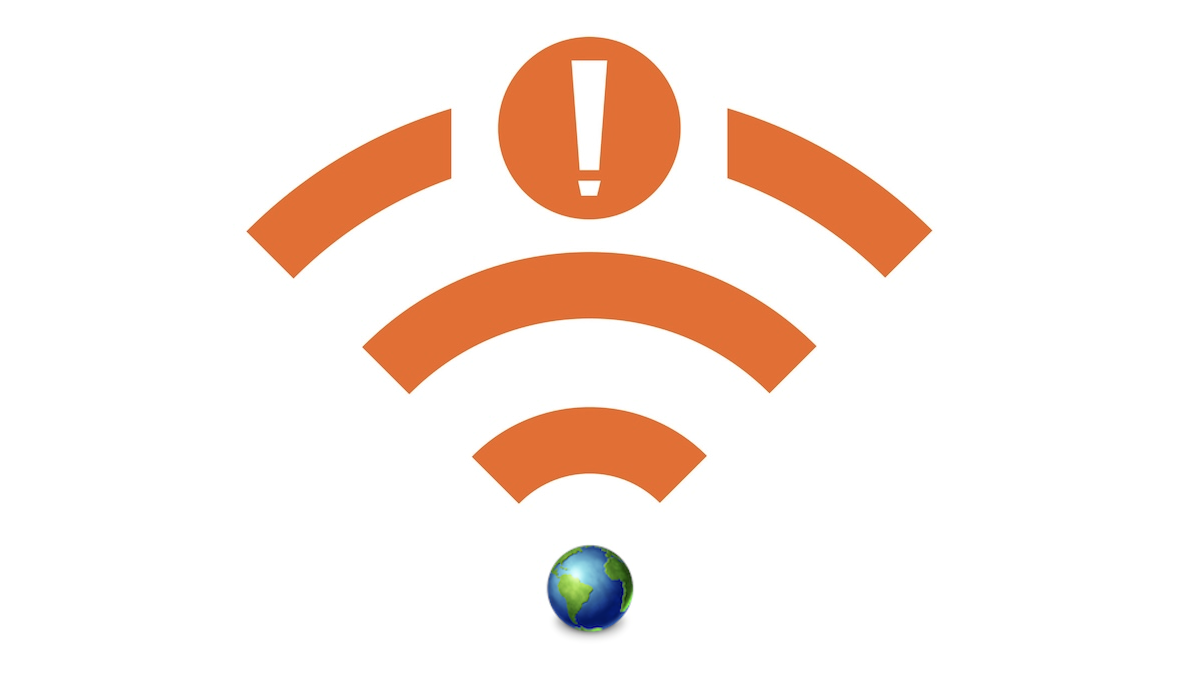The Splinternet: The balkanized future of cyberspace
Just when we are the most connected we've ever been, we're choosing to disconnect.
Russia's unprovoked invasion of Ukraine has made it an international pariah, subject to sanctions and travel restrictions. In response, Vladimir Putin has ordered Russia to prepare to isolate itself even further from the rest of the world:
Russia's long-running plans to cut itself off from the global internet and create its own sovereign version appear to have taken another big step toward reality. The country's communications authority, Roskomnadzor, reportedly tested the system by blocking foreign websites and applications in some regions recently. Unlike in China, where residents can use virtual private networks to circumvent Beijing's Great Firewall, most VPNs failed to allow Russian citizens to bypass the restrictions.
The apparent motive is that the Russian government doesn't want its citizens to be able to communicate with each other on platforms it doesn't control. This includes social media like YouTube, messenger programs like WhatsApp, and web-hosting companies like GoDaddy or Amazon Web Services. The Kremlin wants to restrict Russian citizens to using only Russian internet services, where they can be monitored, censored, and imprisoned if they post anti-war messages or any other sentiment that offends their rulers.
China, of course, has its Great Firewall (officially, the "Golden Shield") which blocks foreign social-media platforms, journalism like the New York Times and the BBC, and even Wikipedia. Of course, one major purpose is to censor topics that reflect badly on China's leadership, like Tiananmen Square, Falun Gong, and treatment of the Uyghur minority. Like Russia, it's also designed to steer Chinese citizens toward domestic platforms rather than foreign alternatives that aren't susceptible to Chinese state oversight.
There was a time when the United States could claim to be the champion of free speech, but the spirit of digital isolationism is taking hold even here. The most salient example would be the impending TikTok ban: forcing TikTok's owner ByteDance to either sell the company to American owners or be banned from distribution in the US. The ban was passed by bipartisan consensus and has been upheld by a federal court.
With this law, we're entering uncharted constitutional waters. It's the first time in recent memory that the US government is arguing they can shut down a business because of the viewpoints it could be used to promote. It's worth noting that this sanction was imposed not because of any specific harm TikTok has caused, but because lawmakers are afraid of what it might be used for. It's not even a punishment for speech—it's a punishment for hypothetical future speech!
To give the critics their due, there are real reasons for concern about a Chinese social-media platform run by a black-box algorithm. It's not irrational to wonder if Beijing might alter TikTok users' feeds to subtly push its own narratives. It could amplify its own propaganda, or try to undermine political candidates it perceives as anti-China, or harvest sensitive data on Americans for intel operations.
But to be consistent, we should ask if American social media companies are any better. An honest answer to that question would have to be no. From Facebook's Cambridge Analytica scandal to Elon Musk buying Twitter to turn it into a toxic right-wing cesspool of misinformation, they've done worse damage to democracy than TikTok by any measure.
These bans, as well as others imposed by other countries for similar reasons, are creating what some call the Splinternet: an internet fragmented across national borders, where your access to information depends on where you live. It seems as if every set of authorities wants to censor the web for their own reasons: to prevent a resurgence of hateful ideologies, to promote domestic companies over foreign competitors, to advance propagandistic myths of national superiority, to cover up an embarrassing history, to monitor popular sentiment so as to nip rebellions in the bud, or simply to deny their citizens knowledge that there are alternatives to the way they're being governed.
Technically, the planet is still connected. All these net blocks are implemented in software; so far, no country has physically cut itself off. As long as that's true, VPNs allow technologically savvy users to get around most censorship regimes. But that will never be more than a small minority of people.
It wasn't supposed to be this way. The creators of the web dreamed of free and universal communications, immune to surveillance or censorship, as in the famous quote: "The Net interprets censorship as damage and routes around it." With AI translation improving by leaps and bounds, it should theoretically be easier than ever for everyone to communicate with everyone.
However, that utopian dream has yielded to our balkanized reality. We live in an era of nationalism, protectionism and xenophobia, and rulers have found success by stoking resentment and fear of outsiders. The world is trending toward more restrictions and more fragmentation rather than less. It's a grand irony that, just when the world is the most connected it's ever been, we're all hunkering down behind our own battlements.

